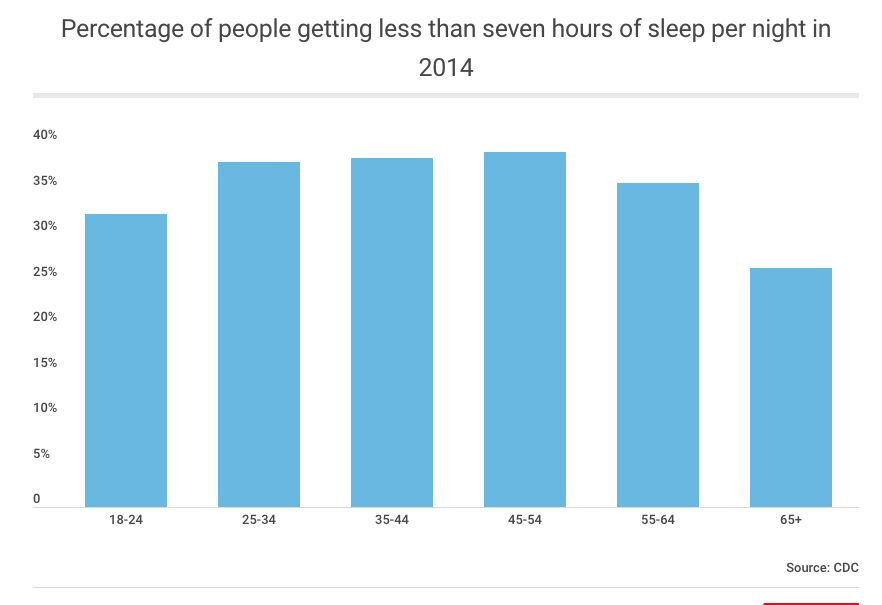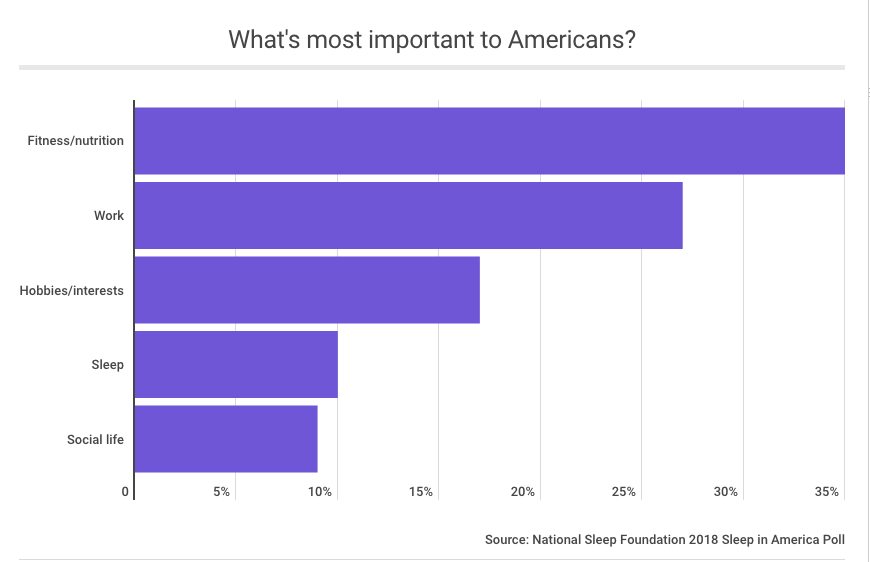By Linda Tate, Northwest Osteopathic Medical Foundation Communications Director
This week, we are going to talk about Insomnia. Many of us will have trouble sleeping at some point in our lives. The reasons for this vary, but hopefully, by the end of this blog, you will have a good idea about where to go to get help, should you desire it.
There was a time in our nation’s history when people were actually getting enough good sleep. In 1942, Americans averaged 7.9 hours of sleep each night. Since that poll, it was discovered in 2013 that our sleep has indeed taken a nosedive. According to a 2014 Gallup poll, it was noted that Americans were averaging just 6.8 hours of sleep each night.
Most of us are acutely aware of our lack of sleep. Some of us struggle with medical conditions that interrupt our sleep, such as Restless Leg Syndrome, Undiagnosed Sleep Apnea, or untreated pain issues.
This CDC data break down the ages at which Americans are more likely—and less likely—to get enough sleep. Americans ages 18 to 24 and those ages 65 and older are most likely to get seven or more hours of sleep per night, while those in their prime working and child-rearing years find it hardest to fit in a full night’s sleep.

Here are the overall stats breaking down the percentage of people by age who in 2014, got less than seven hours of sleep a night.
Interestingly enough, people who realize they aren’t getting enough sleep, don’t prioritize it as “important“. Check out this graph from a 2018 Poll:

Now that we know who is sleeping and who isn’t, let’s talk about insomnia itself. There are two types of insomnia, acute and chronic.
According to the Sleep Foundation.Org, Acute Insomnia “is brief and often happens because of life circumstances (for example, when you can’t fall asleep the night before an exam, or after receiving stressful or bad news). Many people may have experienced this type of passing sleep disruption, and it tends to resolve without any treatment“.
Then there’s the Chronic Insomnia. This type of insomnia “is disrupted sleep that occurs at least three nights per week and lasts at least three months. Chronic insomnia disorders can have many causes. Changes in the environment, unhealthy sleep habits, shift work, other clinical disorders, and certain medications could lead to a long-term pattern of insufficient sleep. People with chronic insomnia may benefit from some form of treatment to help them get back to healthy sleep patterns. Chronic insomnia can be comorbid, meaning it is linked to another medical or psychiatric issue, although sometimes it’s difficult to understand this cause and effect relationship“.
“People with insomnia tend to have difficulty falling asleep (onset), staying asleep (maintenance), and/or they wake up too early in the morning. Treatment for insomnia can include behavioral, psychological, medical components or some combination thereof. You and your doctor will need to talk about your particular situation and history of insomnia, as well as its causes, to decide on the best treatment plan“.
Aside from making an appointment with your PCP (recommended) to talk about your insomnia, there are some great sleep-inducing videos on youtube. Here is a 12 hour one that my friends say helps them. You can also buy “white noise” machines that give you the sound of ocean waves, raindrops on a tin roof, and other sounds that help with sleep.

This blog should not be considered to be medical advice. Your personal health is best discussed one-on-one with your personal physician. Rather, this blog is intended to highlight the distinctive philosophy and practice of osteopathic medicine as expressed by the author and does not necessarily represent the opinion of the Northwest Osteopathic Medical Foundation, or other Osteopathic physicians. The information and opinions are solely those of the author. For more information, go to www.nwosteo.org.


